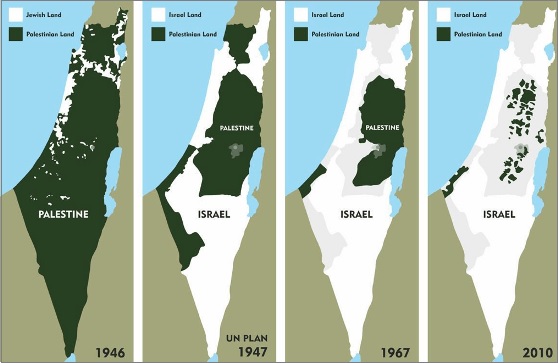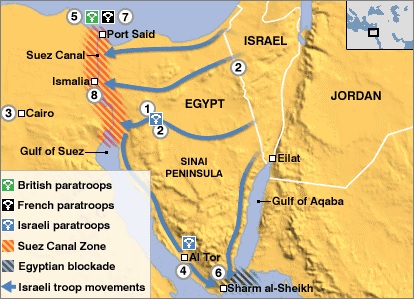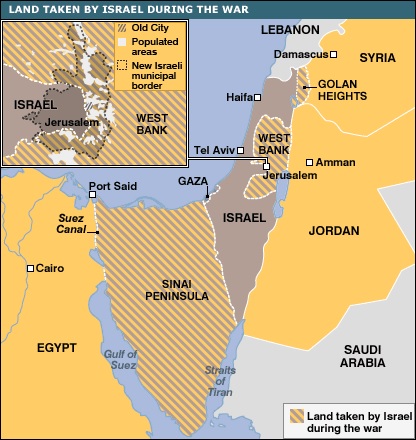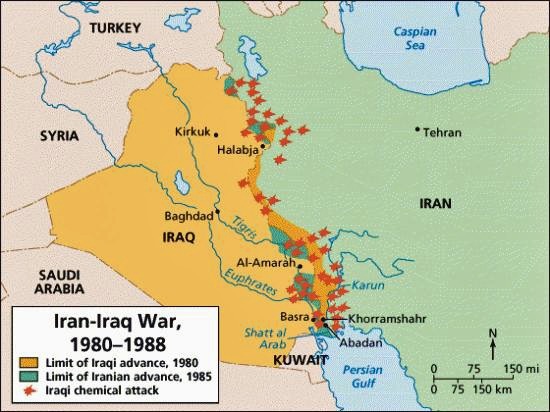West Asia Freedom Movements, Suez Crisis, Iran – Iraq War, Gulf War
by Devender
0 1403
The freedom movement in West Asia reached new heights after the Second World War just like in other parts of Asia.
West Asia Freedom Movements
- Syria and Lebanon:
- Formation of Israel:
- Britishers allowed Jews from outside Palestine to settle there
- A movement started known as the Zionist Movement which claimed that Palestine is home to Jews
- This complicated the freedom movement of Palestine which has more Arab inhabitants
- United Nations passed a resolution in 1947 to divide Palestine into two parts: Arab part and Jews part
- In 1948, Britishers withdrew is troops from Palestine, and the emergence of the state of Israel occurred
- However, Arab states refused to recognize Israel which ended up in a conflict between Arab states and Israel
- Suez crisis:
- Israel attacked and captured the Sinai Peninsula but these attacks were widely criticized
- US refused to support Britain in this matter
- US and Soviet Union demanded an immediate ceasefire and for the first time, they agreed on something
- The pressure was building upon Britain, France, and Israel and hence, they decided to withdraw
- 6 Days War:
- Sinai peninsula and Gaza strip from Egypt
- West Bank from Jordan
- Golan Heights from Syria
After the world war, France wanted to regain control of Syria and Lebanon but it was met with serious opposition by the people of both countries. The world opinion was also against France which forced them to withdraw and both Syria and Lebanon became independent countries in 1946.
There was an upsurge in all the Arab nations as of now and 1950s considered there to be as free countries. The time frame saw the developing force of Arab nationalism which prompted endeavors by the Arab public and governments to meet up to confront and tackle basic issues. The Arab League was shaped including all the Arab states.
Palestine became a British mandate in 1919 and after the Second world war, British troops again occupied the country in 1945. Huge convergence of Jews occurred in Palestine after which they faced extermination under the hands of Hitler in Germany. Palestine was inhabited by Arabs & Jews and after the genocide of Jews, they found some support and sympathy from around the world.

Arab states were united under the leadership of Egypt and its leader Colonel Nasserand but still Israel defeated them in the war.
Suez Canal was a part of Egypt under the treaty of Constantinople in 1889. Though, larger parts of the Suez canal were under the control of the US, Britain, France, etc. and in return for transportation, these countries were providing various kinds of financial assistance to Egypt. However, after the Egypt-Israel war, Britain pulled out from providing financial help to Egypt and Egypt nationalized the Suez Canal which led to the Suez crisis in 1956.

Arab states joined hands to destroy Israel and Iraq, Syria & Egypt took charge. Russians also came forward to help these Arab countries because Israel was supported by Americans. Israel decided that it is best to attack than defend against their attacks and hence they captured:

Israel turned these areas into buffer zones to use against the Arab attacks. Russians were of no help to Arab states and hence, it became a humiliation for Arab countries.
Iran -Iraq War
In 1979, Iran became a republic under the leadership of Ayatollah Khomeini & Shiite supporters whereas Iraq was ruled by Saddam Hussein. Iraq had mainly Sunni with a large Shia minority population.

- Saddam believed that revolutions in Iran would spill over to his country
- He was overconfident about the Iraqi armed forces strength
- He considered Iranian forces to be weak and that's why launched an attack on Iran expecting a quick victory
- Iraqi forces were strong on paper but Iranian forces fought brilliantly
- China and North Korea gave weapons to Iran
- Result:
The stability of the entire region was under threat. Saudi Arabia, Jordan, and Kuwait gave support to Iraq but Syria, Libya, Algeria were against Iraq. No side was able to achieve their objectives and the war never ended.
Gulf War
Saddam Hussein launched another attack in 1990 but this time the attack was on Kuwait because:
1 Saddam needed money after the war with Iran and Kuwait was very wealthy.
2 Saddam claimed that Kuwait had been a part of Iraq.
3 Saddam had the strongest army in the region.
4 Saddam hoped that US and European powers would not interfere in his affairs as they supplied weapons to him in the war against Iran.
He was wrong and US chose to go against Iraq with military actions and the United Nations put trade sanctions on Iraq.
- Operation Desert Storm was launched against Iraq
- The countries which were supporting Iraq got afraid of intentions of Saddam and backed out on him
- Baghdad was bombed and Kuwait was liberated in just 4 days
- Saddam was left to rule Iraq with limited arms and troops
- Result:
The west believed that Saddam's survival was necessary for the stability of this region.
The whole of Iraq was devastated and the Kurds in Iraq started to rebel at the same time but Russia, Syria, and Turkey didn't interfere as these countries also had Kurds minority of their own and didn't want the revolution to spread in their own countries.
The countries only took actions when there were threats on their oil supplies or else there was no question of International justice or right & wrong.

Share:







Comments
Waiting for your comments